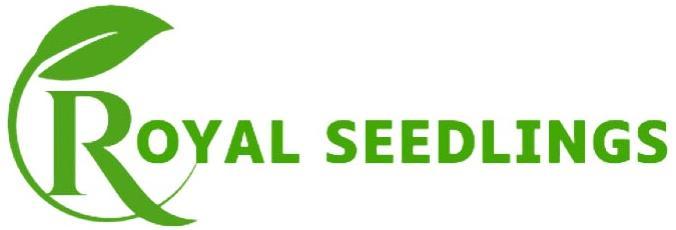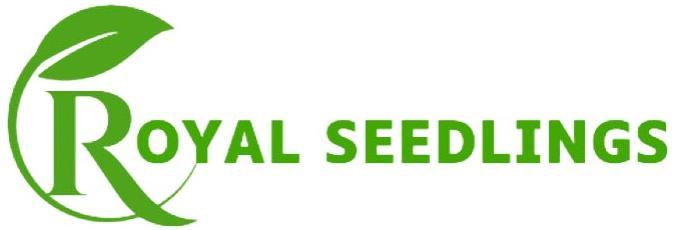The success of your avocado farming venture depends on the quality of your seedlings. Certification and quality standards for avocado seedlings ensure that you have healthy, productive trees that meet market demands.
These standards protect your investment by:
- Ensuring disease-free plants
- Verifying genetic authenticity
- Guaranteeing optimal growth potential
- Meeting international market requirements
Quality certification programs combine mandatory regulations with voluntary standards to create a comprehensive system. These programs use strict testing protocols, regular inspections, and documented best practices to maintain seedling integrity.
The impact of certified seedlings goes beyond individual farms:
- Enhanced Production: Certified seedlings show higher survival rates and better fruit yields
- Disease Prevention: Rigorous testing prevents the spread of harmful pathogens
- Market Access: Certification helps meet export requirements
- Sustainable Practices: Standards promote environmentally responsible farming methods
Regulatory bodies work with nurseries to implement these standards through:
- Licensed seller programs
- Regular quality inspections
- Documentation of growing practices
- Verification of genetic material
Your choice of certified avocado seedlings directly influences your orchard’s future productivity and profitability. Understanding these standards helps you make informed decisions for your farming success.
However, it’s important to note that the principles of successful farming extend beyond just avocado cultivation. For instance, if you’re considering diversifying your agricultural ventures, you might want to explore the realm of garlic farming in Kenya, which offers lucrative opportunities. Similarly, sorghum farming and sugarcane farming are other viable options worth exploring. Additionally, if you’re interested in venturing into watermelon farming, this could also yield significant returns. Each of these farming sectors has its own set of certification and quality standards that play a crucial role in ensuring successful yields and profitability.
Regulatory Frameworks for Avocado Seedlings
The California Nursery, Seed, & Cotton Program stands as a benchmark model for avocado seedling regulation. This program implements strict quality control measures through:
- Mandatory Registration: Nurseries must register their facilities and maintain detailed records of their propagation practices.
- Disease Testing Protocols: Regular testing for pathogens, particularly Phytophthora root rot.
- Growth Environment Standards: Requirements for sterile growing media and proper irrigation systems.
The licensing process for avocado seedling sellers involves multiple steps:
- Initial facility inspection
- Documentation of source materials
- Proof of proper sanitation practices
- Regular compliance audits
- Staff training verification
Regulatory inspections follow a structured approach:
- Scheduled Assessments: Quarterly evaluations of growing conditions
- Random Spot Checks: Unannounced visits to ensure consistent compliance
- Sample Testing: Collection of plant material for laboratory analysis
- Documentation Review: Examination of propagation and treatment records
These regulatory frameworks create a standardized system for producing high-quality avocado seedlings. The certification services provided ensure nurseries maintain optimal growing conditions, implement proper disease management protocols, and adhere to industry best practices.
In addition to these regulations, there are also training opportunities available for aspiring commercial fruit growers in regions such as Muranga County. Such professional avocado farming training sessions provide valuable insights into best practices and methodologies in the industry.
Moreover, the role of advanced techniques like [tissue culture in banana seedling production](https://royalseeedlings.com/the-role-of-tissue-culture-in-banana-seedling-production) could also be explored by nurseries looking to diversify their offerings beyond just avocado seedlings.
On another note, while the focus here is on avocado seedlings, it’s worth mentioning that similar regulatory frameworks and training opportunities exist in other sectors of agriculture as well. For instance, [cabbage farming in Kenya](https://royalseedlings.com/cabbage-farming-in-kenya-a-complete-guide) and sweet potato farming in Kenya have their own set of guidelines and training programs aimed at ensuring high-quality produce.
Certification Process for Avocado Seedlings
The certification process for avocado seedlings involves rigorous testing and strict quality control measures to ensure optimal plant health and productivity. Here’s what you need to know about the certification requirements:
Core Certification Criteria:
- Genetic authenticity verification
- Disease-free status confirmation
- Root system evaluation
- Growth rate assessment
- Nutritional status testing
The testing procedures include comprehensive laboratory analysis and physical inspections. Your seedlings undergo pathogen screening, soil testing, and regular monitoring throughout their growth cycle. These tests detect potential issues like:
- Phytophthora root rot resistance
- Presence of harmful nematodes
- Viral infections
- Bacterial diseases
- Nutrient deficiencies
Certified grafted Hass avocado seedlings deliver specific advantages to growers, including enhanced disease resistance, verified growth patterns, quality assurance, and traceable origins.
The certification process requires seedlings to be grown in controlled environments with proper sanitation protocols. Regular inspections by qualified professionals ensure compliance with certification standards throughout the growing period.
In addition to avocado farming, there are various other agricultural practices that can be explored in Kenya such as coriander farming, wheat farming, maize farming, and even running a dairy farm which can be lucrative ventures with the right knowledge and resources.
Quality Standards for Avocado Seedlings
Selecting high-quality avocado seedlings requires careful attention to specific physical characteristics and growth indicators. Here’s what you need to look for:
Age and Size Requirements
- Plant age: 6-8 months or older
- Height: 45-60 cm for grafted seedlings
- Stem diameter: 1-1.5 cm at the base
Root System Indicators
- White, firm roots without discoloration
- Well-developed root ball that holds soil together
- No signs of root binding or circling
- Adequate drainage holes in the container
Visual Health Markers
- Deep green leaves without yellowing or spots
- Sturdy, straight trunk free from mechanical damage
- Uniform branching pattern
- Clear graft union with proper healing
Reputable Nursery Standards
When searching for a nursery, it’s essential to understand what makes a good nursery. Look for valid certification documentation, a clean and organized growing environment, regular pest monitoring systems, professional staff with technical knowledge, and traceable seedling history.
Quality seedlings from certified nurseries undergo rigorous pest and disease screening. These facilities maintain strict sanitation protocols and implement regular testing for common avocado pathogens. Their growing media is sterilized, and irrigation systems are designed to prevent waterborne diseases. For instance, understanding [how to prevent pest infestations in young orchards naturally](https://royalseedlings.com/preventing-pest-infestations-in-young-orchards-naturally) can be beneficial.
Purchasing from accredited nurseries guarantees access to detailed growing records and post-sale support. These establishments maintain proper spacing between plants, use appropriate fertilization programs, follow recommended hardening-off procedures before seedling distribution, and adhere to a [seasonal planting calendar for fruit seedlings in Central Kenya](https://royalseedlings.com/seasonal-planting-calendar-for-fruit-seedlings-in-central-kenya).
If you’re considering expanding your agricultural ventures beyond avocados, you might want to explore other profitable farming options such as [carrot farming in Kenya](https://royalseedlings.com/carrot-farming-in-kenya-a-profitable-carrot-farmers-guide), which could complement your avocado orchard well.
Benefits of Certified Avocado Seedlings
Certified avocado seedlings deliver significant advantages for both commercial farmers and small-scale growers. These benefits extend beyond the farm gate to impact the entire agricultural value chain.
Enhanced Plant Health and Production
- Disease-resistant rootstock reduces crop losses
- Stronger immune systems combat common avocado pathogens
- Higher fruit yields through improved genetic qualities
- Extended productive lifespan of trees
In addition to avocados, similar benefits are observed in other agricultural sectors such as onion farming in Kenya, pumpkin farming, and even grape farming which can also thrive with certified seedlings.
Market Access and Compliance
- Meet strict export market requirements
- Traceable plant origin documentation
- Compliance with phytosanitary regulations
- Access to premium market segments
Environmental and Economic Sustainability
- Reduced pesticide usage due to natural disease resistance
- Lower water consumption through efficient root systems
- Minimal soil degradation
- Increased farm profitability through quality harvests
Certified seedlings also support local economies by creating skilled jobs in nurseries and enabling farmers to participate in international trade. The certification process ensures standardized growing practices, resulting in uniform fruit quality that commands better market prices.
These certified plants adapt better to changing climate conditions and demonstrate improved resilience during stress periods. Their established root systems and verified growing conditions translate to stronger trees that require less intervention during their productive years.
Farmers looking to diversify their crops can also explore opportunities in passion fruit farming or improved kienyeji chicken farming which are viable options for increasing farm profitability.
Conclusion
Investing in certified avocado seedlings sets the foundation for successful avocado farming. These quality-assured seedlings unlock export opportunities and establish your orchard’s long-term productivity. By choosing certified seedlings from reputable nurseries, you protect your investment and contribute to sustainable agricultural practices.
But avocado farming isn’t the only fruitful venture you can embark on. Consider diversifying your agricultural portfolio with crops such as watermelons or arrowroot. Both of these crops have proven to be lucrative in Kenya’s farming landscape.
Ready to start your avocado farming journey? We offer premium Hass and Fuerte seedlings that meet rigorous certification and quality standards.
Contact us today:
- 📱 Call: 0711315313
- ✉️ Email: julius.murega@royalseedlings.com
Your success in avocado farming begins with certified, high-quality seedlings. Make the smart choice for your orchard’s future.
FAQs (Frequently Asked Questions)
Why is certification important for avocado seedlings?
Certification ensures that avocado seedlings meet quality standards, promoting plant health, disease resistance, and improved production outcomes. Certified seedlings comply with regulatory frameworks and support sustainable agricultural practices.
What regulatory frameworks govern avocado seedling certification?
In California, the Nursery, Seed, & Cotton Program provides voluntary registration and certification services. Regulatory frameworks include licensing processes for sellers and coordination of inspections to maintain seedling quality.
What criteria are used in the certification process for avocado seedlings?
Certification requires seedlings to be grown in disease-free environments and undergo rigorous testing to confirm disease resistance and overall quality. This process ensures certified grafted Hass avocado seedlings meet high standards.
What are the key quality standards for selecting healthy avocado seedlings?
Quality standards include a healthy root system, absence of disease signs, balanced height and size, and sourcing from reputable nurseries. These characteristics ensure strong growth and successful production.
How do certified avocado seedlings benefit growers and the environment?
Certified seedlings promote better plant health, compliance with market regulations and international standards, and encourage sustainable agricultural practices that protect the environment while enhancing production outcomes.
How can I purchase certified Hass or Fuerte avocado seedlings or partner with a reputable nursery?
You can contact Royal Seedlings by calling 0711315313 or emailing julius.murega@royalseedlings.com to purchase certified Hass and Fuerte seedlings or explore partnership opportunities with a trusted nursery.






